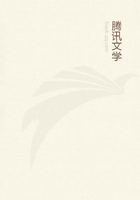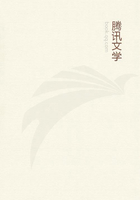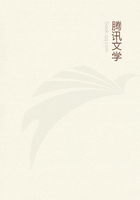He lit his fire, made himself some tea, ate his cold mutton and biscuits, and lit his pipe, exactly as he had done twenty years before. There was the clear starlit sky, the rushing river, and the stunted trees on the mountain-side; the woodhens cried, and the "more-pork" hooted out her two monotonous notes exactly as they had done years since; one moment, and time had so flown backwards that youth came bounding back to him with the return of his youth's surroundings; the next, and the intervening twenty years--most of them grim ones--rose up mockingly before him, and the buoyancy of hope yielded to the despondency of admitted failure. By and by buoyancy reasserted itself, and, soothed by the peace and beauty of the night, he wrapped himself up in his blanket and dropped off into a dreamless slumber.
Next morning, i.e. December 3, he rose soon after dawn, bathed in a backwater of the river, got his breakfast, found his horse on the river-bed, and started as soon as he had duly packed and loaded.
He had now to cross streams of the river and recross them more often than on the preceding day, and this, though his horse took well to the water, required care; for he was anxious not to wet his saddle-bags, and it was only by crossing at the wide, smooth, water above a rapid, and by picking places where the river ran in two or three streams, that he could find fords where his practised eye told him that the water would not be above his horse's belly--for the river was of great volume. Fortunately, there had been a late fall of snow on the higher ranges, and the river was, for the summer season, low.
Towards evening, having travelled, so far as he could guess, some twenty or five and twenty miles (for he had made another mid day halt), he reached the place, which he easily recognised, as that where he had camped before crossing to the pass that led into Erewhon. It was the last piece of ground that could be called a flat (though it was in reality only the sloping delta of a stream that descended from the pass) before reaching a large glacier that had encroached on the river-bed, which it traversed at right angles for a considerable distance.
Here he again camped, hobbled his horse, and turned him adrift, hoping that he might again find him some two or three months hence, for there was a good deal of sweet grass here and there, with sow-thistle and anise; and the coarse tussock grass would be in full seed shortly, which alone would keep him going for as long a time as my father expected to be away. Little did he think that he should want him again so shortly.
Having attended to his horse, he got his supper, and while smoking his pipe congratulated himself on the way in which something had smoothed away all the obstacles that had so nearly baffled him on his earlier journey. Was he being lured on to his destruction by some malicious fiend, or befriended by one who had compassion on him and wished him well? His naturally sanguine temperament inclined him to adopt the friendly spirit theory, in the peace of which he again laid himself down to rest, and slept soundly from dark till dawn.
In the morning, though the water was somewhat icy, he again bathed, and then put on his Erewhonian boots and dress. He stowed his European clothes, with some difficulty, into his saddle-bags.
Herein also he left his case full of English sovereigns, his spare pipes, his purse, which contained two pounds in gold and seven or eight shillings, part of his stock of tobacco, and whatever provision was left him, except the meat--which he left for sundry hawks and parrots that were eyeing his proceedings apparently without fear of man. His nuggets he concealed in the secret pockets of which I have already spoken, keeping one bag alone accessible.
He had had his hair and beard cut short on shipboard the day before he landed. These he now dyed with a dye that he had brought from England, and which in a few minutes turned them very nearly black.
He also stained his face and hands deep brown. He hung his saddle and bridle, his English boots, and his saddle-bags on the highest bough that he could reach, and made them fairly fast with strips of flax leaf, for there was some stunted flax growing on the ground where he had camped. He feared that, do what he might, they would not escape the inquisitive thievishness of the parrots, whose strong beaks could easily cut leather; but he could do nothing more. It occurs to me, though my father never told me so, that it was perhaps with a view to these birds that he had chosen to put his English sovereigns into a metal box, with a clasp to it which would defy them.
He made a roll of his blanket, and slung it over his shoulder; he also took his pipe, tobacco, a little tea, a few ship's biscuits, and his billy and pannikin; matches and salt go without saying.
When he had thus ordered everything as nearly to his satisfaction as he could, he looked at his watch for the last time, as he believed, till many weeks should have gone by, and found it to be about seven o'clock. Remembering what trouble it had got him into years before, he took down his saddle-bags, reopened them, and put the watch inside. He then set himself to climb the mountain side, towards the saddle on which he had seen the statues.

